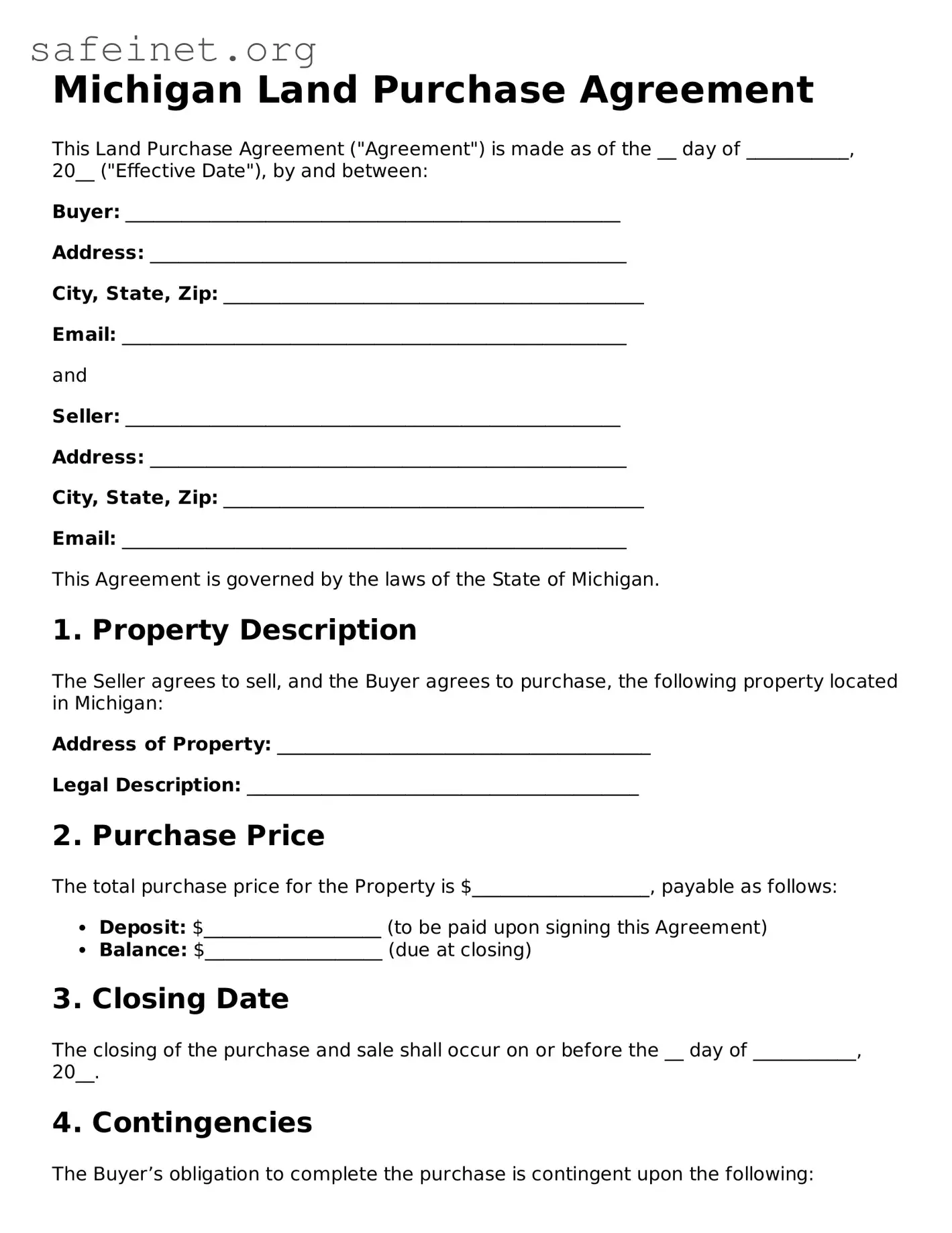Michigan Land Purchase Agreement
This Land Purchase Agreement ("Agreement") is made as of the __ day of ___________, 20__ ("Effective Date"), by and between:
Buyer: _____________________________________________________
Address: ___________________________________________________
City, State, Zip: _____________________________________________
Email: ______________________________________________________
and
Seller: _____________________________________________________
Address: ___________________________________________________
City, State, Zip: _____________________________________________
Email: ______________________________________________________
This Agreement is governed by the laws of the State of Michigan.
1. Property Description
The Seller agrees to sell, and the Buyer agrees to purchase, the following property located in Michigan:
Address of Property: ________________________________________
Legal Description: __________________________________________
2. Purchase Price
The total purchase price for the Property is $___________________, payable as follows:
- Deposit: $___________________ (to be paid upon signing this Agreement)
- Balance: $___________________ (due at closing)
3. Closing Date
The closing of the purchase and sale shall occur on or before the __ day of ___________, 20__.
4. Contingencies
The Buyer’s obligation to complete the purchase is contingent upon the following:
- 1. Buyer obtaining financing;
- 2. Satisfactory inspection of the Property;
- 3. Any other agreed-upon contingencies.
5. Representations and Warranties
The Seller represents that:
- They are the legal owner of the Property;
- The Property is free of any liens or encumbrances (except as disclosed);
- They have the authority to sell the Property.
6. Governing Law
This Agreement shall be governed by and construed in accordance with the laws of the State of Michigan.
7. Signatures
IN WITNESS WHEREOF, the parties have executed this Land Purchase Agreement as of the date first above written.
Buyer Signature: ____________________________________________
Seller Signature: ____________________________________________
Date: _______________________________________________________
